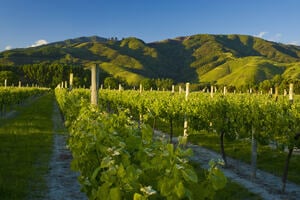Course overview
- Provider
- Futurelearn
- Course type
- Free trial availiable
- Deadline
- Flexible
- Duration
- 4 hours
Description
New Zealand is a “new world” producer of wines, innovating to provide high-quality products assisted by technology and driven by sustainability.
On this four-week course from the Nelson Marlborough Institute of Technology (NMIT), you’ll explore the concept of sustainable wine production, from a sustainable way of managing the environment called kaitiakitanga, to the vision and purpose of the sustainable wine label Tohu.
Investigate the benefits and challenges of regenerative agricultureWine grapes are grown in three ways: conventionally, organically, and biodynamically. These different sustainable management systems have some similarities and some differences, and which is used will depend on a number of factors.
You’ll look at each approach, learning the key principles that set them apart and comparing their techniques, benefits, and challenges. You’ll also cover regenerative agriculture as a whole, delving into the science and principles behind it.
Discover different sustainable certifications, including the ISO 14001Sustainable Winegrowing New Zealand (SWNZ) is a certification programme created to provide a ‘best practice’ model of environmental practices in the vineyards and wineries in New Zealand.
On this course, you’ll look at the various certifications recognised by SWNZ, from BioGro’s organic certification to the ISO 14001. You’ll delve into what these certifications mean, why they’re important to the sustainable wine industry, and the process of achieving them.
Learn from the experts at NMITNMIT is located in the main wine region of New Zealand, with 78% of the wine grape production. Sharing their campus with government research institutes focused on the wine industry, their faculty are experts in the field of viticulture and winemaking.
Similar courses

-
1 hour
-
13 lessonsCertificate

-
4 hours
-
22 lessonsCertificate

-
5 hours
-
24 lessonsCertificate

